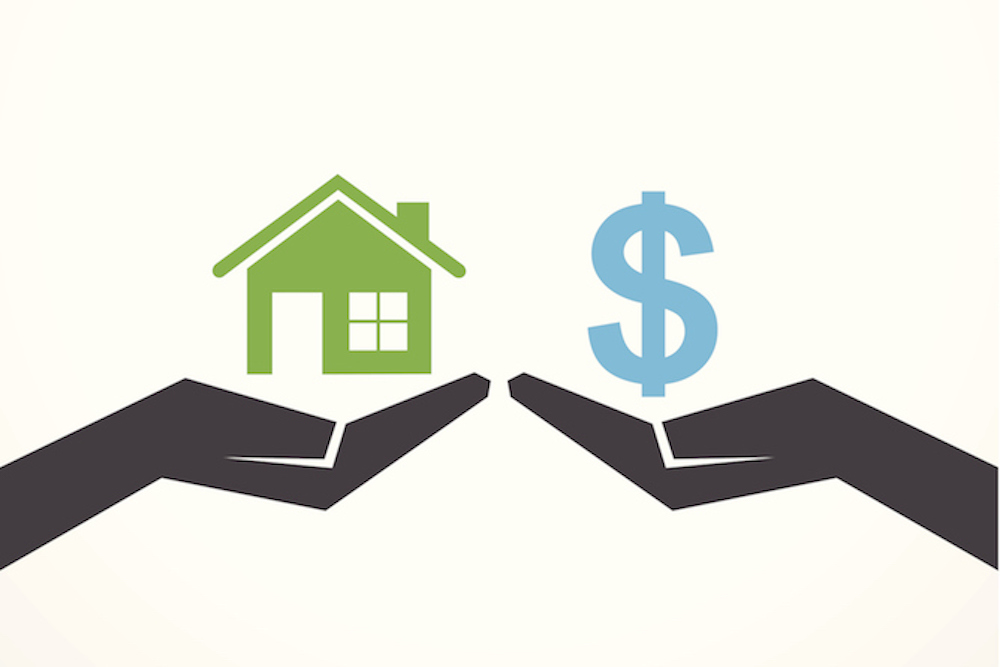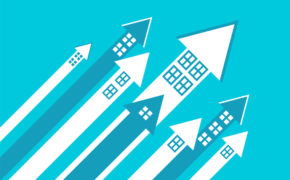Conventional vs. FHA Loans: Which is Right for Me?
When it comes to buying a house, you want to spend as much time evaluating your mortgage loan options as you do searching for the perfect home. After all, buying a home is a major investment and there is no such thing as a one-size-fits-all-solution.
There are many different types of mortgage loans, each with unique advantages. The key to obtaining a mortgage you can live with is working with a loan officer who can help you weigh the pros and cons of each, as it relates to your situation and financial goals.
However, there’s more to choosing a mortgage than evaluating fixed and adjustable-rate loans and a 15-year or 30-year term. You’ll also want to consider whether you want a conventional loan or an FHA loan. Let’s discuss the advantages and drawbacks of each.
What is an FHA loan?
An FHA loan is a type of government loan that is insured by the Federal Housing Administration and issued by FHA-approved lenders. Designed for low-to-moderate income borrowers who may have less than perfect credit history, FHA loans typically have less stringent underwriting and allow for lower down payments, all of which can come in the form of a gift.
While most lenders require around a 620 credit score for an FHA loan, Ross Mortgage is expanding homeownership opportunities for more people by lowering the minimum credit score to 580 for qualified borrowers.
Who is FHA financing for?
In today’s seller’s market, it’s crucial to find a home loan that puts you in the best possible financial position, so you can give a competitive offer. The FHA loan is a great option not only for first-time homebuyers who are in the process of building their credit from scratch, but also a great option for boomerang buyers who may have experienced a foreclosure, short sale or bankruptcy and are working to rebuild their credit.
Additionally, the FHA loan may be a great financing solution for two-income households where one person has good credit and the other doesn’t. The FHA loan allows the significant other with the lower score to build credit as a co-borrower on the mortgage while trying to boost their score in other ways, as well.
Advantages of FHA loans
- Easier to qualify for based on more generous credit qualifying criteria. The lending guidelines associated with FHA financing are traditionally less stringent than conventional financing, making it easier to qualify for an FHA loan.
- Flexible credit requirements. With our minimum credit score requirement of 580, qualifying for an FHA loan has never been easier!
- Lower interest rates. Save money over the life of your loan with a lower interest rate.
- FHA loans are a great low down payment option. The down payment requirement for an FHA mortgage starts as low as 3.5% and is ideal for first-time homebuyers who are just starting to build their credit and their savings.
- Down payment and money for closing may be gifted by a relative. Another benefit of the FHA loan program is that borrowers can use gift money, government grants or seller concessions to help with their required down payment.
Drawbacks to consider
- Private Mortgage Insurance (PMI) is required and cannot be removed. FHA loans are subject to upfront and annual mortgage insurance premiums. Although FHA loans tend to come with slightly lower interest rates, additional costs, such as PMI and upfront premiums, should be considered when evaluating the benefits of conventional vs. FHA loans. The additional costs may actually result in a higher monthly mortgage payment and cause you to pay more over the life of the loan.
- Property guidelines may be stricter than conventional loans. Because FHA mortgages are insured by the government, there are typically stricter appraisal guidelines. The property in question must meet certain minimum criteria before it can be approved for FHA financing.
What is a conventional loan?
Unlike FHA loans, conventional mortgage loans are NOT insured through government programs. Instead, conventional loans have a separate set of funding criteria and are backed by Fannie Mae and Freddie Mac.
Who is conventional financing for?
Traditionally, conventional loans suit the needs of homebuyers who have strong credit and can afford a higher down payment.
Advantages of conventional financing
- Unlike FHA loans, conventional loans do not include upfront mortgage insurance premiums. Conventional borrowers also have the ability to get rid of PMI once they reach 20% equity in their home, where as FHA loans do not offer the option to remove PMI.
- New low down payment options. While FHA loans are attractive for their low down payment options, Fannie Mae and Freddie Mac announced a new conventional loan program that allows homebuyers to purchase a house for as little as 3% down. Geared toward homebuyers who want the benefits of a conventional mortgage but lack the resources to save for a large down payment, this 3% down payment program reduces the upfront cost of purchasing a home.
- Flexible terms. With conventional financing, homebuyers have the convenience and flexibility of choosing between several repayment options, including the ability to have a fixed or adjustable rate mortgage, as well as a 15, 20 or 30-year term.
- Conventional loans can be used to finance practically any property. Some types of properties aren’t approved for FHA financing. Conventional loans are accepted for just about any property.
Drawbacks to consider
- Stricter lending guidelines. Historically, conventional loans tend to have tougher standards when it comes to lending guidelines and requirements. This typically includes higher credit score criteria and income requirements.
- While the rates for conventional mortgage loans have been historically lower than FHA rates, we’re currently experiencing record interest low rates across the board. This should excite anyone who’s thinking about buying a home. Plus, as mentioned above, the additional mortgage insurance premiums associated with FHA financing may actually cancel out any cost-savings.
- Mortgage insurance is required for loans with a down payment of less than 20%. While this may be the case, conventional borrowers can remove PMI payments once they obtain 20% equity in their home, whereas FHA borrowers do not have this luxury.
The key thing to remember when shopping for mortgage loans is to evaluate all of your options. There’s more to it than getting a great low rate! Be sure to work with a mortgage lender that has your best interest at heart and will work with you to find a mortgage loan that fits your financial needs.
If you are serious about buying a house and want to figure out which loan is best for you, send us a message! We’d be happy to help you determine which loan you would qualify for and compare the cost of each loan.










